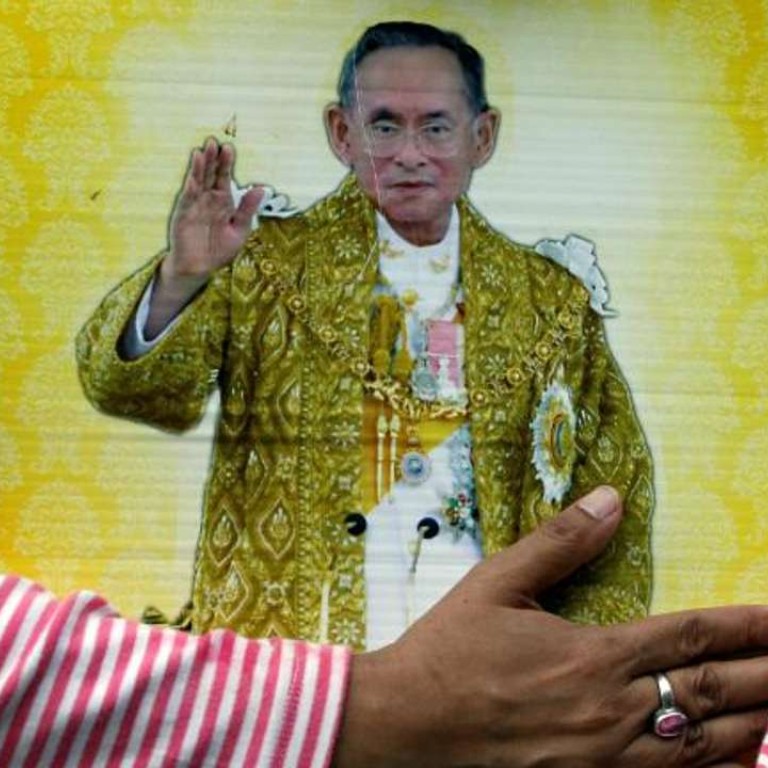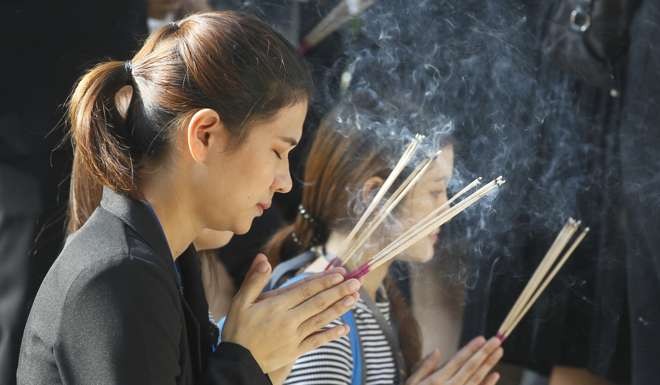
In Bangkok’s Chinatown, grief and gratitude following Thai king’s death
Members of the minority group recall how the monarch changed their lives and treated them with respect
Many Chinese Thai are expressing deep sadness over the passing of King Bhumibol Adulyadej, whom they described as a fatherly figure. But the grief is mixed with a sense of uncertainty that looms over the future of the country.
Ma Chongying, who owns a Chinese restaurant along with her sister in Bangkok’s Chinatown, said the death of Bhumibol, 88, meant their lives would never be the same.
I really cannot imagine what will happen to our lives without him
“He is just like our father and is the patron of our family. I really cannot imagine what will happen to our lives without him,” said Ma, 44, who was born in a Thai village bordering Myanmar in the Chiang Rai region. Both she and her sister, Ma Chongxian, 53, are descendents of members of the Kuomintang who fled to the area before the founding of the People’s Republic of China. When they learned the news of the king’s death on television on Thursday night, everyone – including those eating in the restaurant – broke into tears, Ma Chongying said.
“As soon as we heard it, no one was in the mood to do anything and we had to end our business yesterday at least three hours earlier than usual,” she said.
In recent months, the sisters had often joined other Thais to pray for the king outside the hospital. “I think as ethnic Chinese we will be forever grateful to the king who cared about our well-being and treated us equally,” Ma Chongxian said.

“I think he should be credited with the fact that we don’t feel like we are a minority group here and we share the sense of security living in this nation.”
They both said they could still recall when Bhumibol visited their once-impoverished hometown in the 1980s and tried to find ways to improve their livelihood.
“My hometown used to be a place that nobody, including authorities in Myanmar and China, paid any attention to. But things gradually changed after his visit,” they said.
Chen Mingquan, 54, a businessman born in Bangkok and an expert on Chinatown’s history, said the king’s death was a difficult moment for many local Chinese. “I guess we are so used to the fact that the king had been part of our lives since we were born. And today is the first day that we live without him, which is very sad and different,” Chen said.
I’ve admitted that my children of course don’t see the king as affectionately as we do
Even the younger generation, which tends to view the monarchy and the world differently from their parents, still regard the king as pivotal to modern Thailand.
“That said, I’ve admitted that my children of course don’t see the king as affectionately as we do, just like we have different ways of treating our own parents,” Chen said.
It is estimated that at least 50,000 ethnic Chinese live in Chinatown today. “Chinese immigrants are generally highly respected in Thailand, partly because many of the king’s senior advisers and officials have Chinese origins, and we are usually perceived as the most capable and diligent people in Thailand,” he said.
Despite uncertainties over the royal succession, which could take months, perhaps years, to complete, ethnic Chinese said they hoped the nation would remain stable. “Frankly, we don’t know how we are going to live without the king. But life has to go on and we will try our best to better our lives, which we believe was also the king’s aspiration,” said Ma Chongying.

